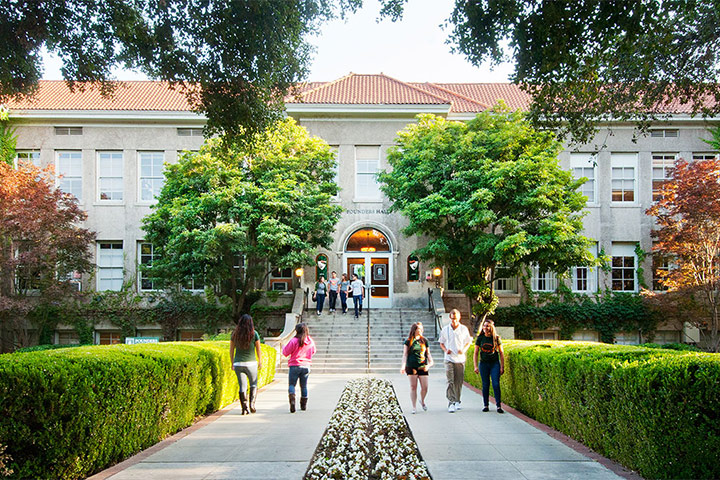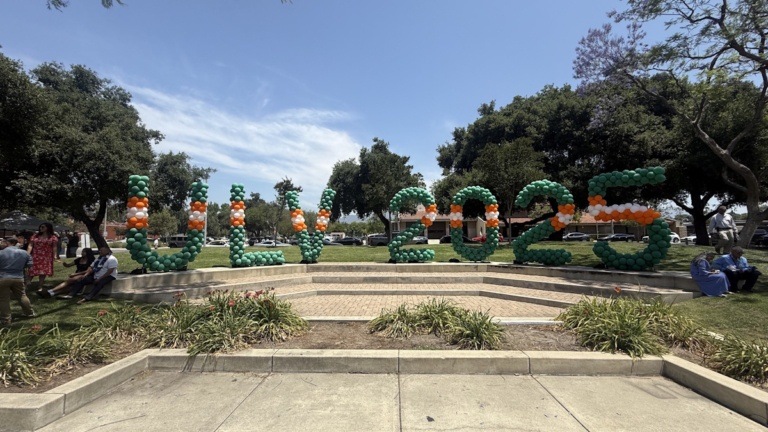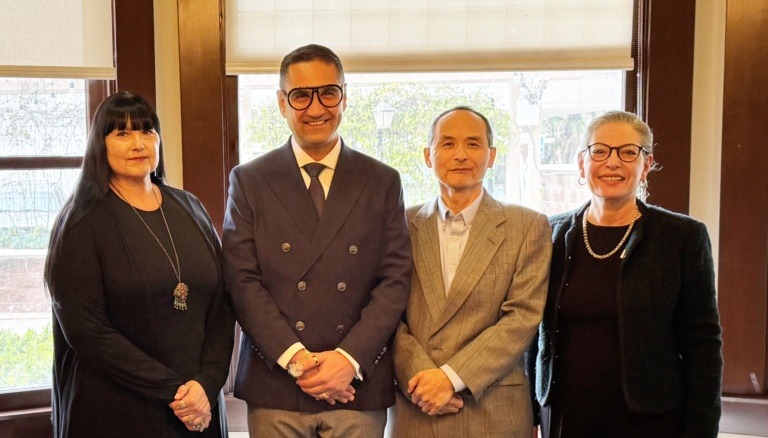AI in Academia: La Verne Faculty Discuss the Future of AI in Higher Education

Artificial intelligence is already transforming higher education—but without clear direction, it
could create more confusion than progress. That was the message from faculty experts at the
University of La Verne’s “AI & Academia” panel on April 17, 2025. Held in the Campus Center
Ballroom, the discussion focused on how AI is reshaping research, student learning, and
university policy at a pace few had anticipated.
“We are in the stage where people are confused or don’t know what to do,” said Ali Dehghan, a
panelist and Associate Professor, IT & Business Analytics. “AI is moving so fast. If we don’t
actively consider how our educational pathways should evolve, we risk having those changes
made for us.” Panelists urged colleagues to proactively shape AI’s role rather than react to it
after the fact.
Several speakers emphasized that AI literacy is quickly becoming a workforce requirement.
“Applicants may encounter interview questions about how they’ve used AI and whether they
know how to use it ethically,” said Christine Jagannathan, Professor of Practice in Business
Communication. She added that even hiring managers are using AI to evaluate materials—and
universities are now playing catch-up. “AI is not going away.”
Real-world classroom examples showed AI’s promise. Professor of Practice in Management,
Teresa Martinelli described a graduate student who created an AI agent for leadership
assessment. “He collected his data in one month. That’s very, very fast,” she said. The tool
adapted its questions, measured traits like emotional intelligence, and was supported by
academic research. “He doesn’t even have to leave his garage,” Martinelli added.
Policy, however, remains a gray area. “Most universities are at the point where everybody’s
experimenting,” Jagannathan noted. La Verne formed an ad hoc committee in 2023 to explore
institutional policy and posted sample guidelines on its library site. Still, there is no
university-wide rule on AI use across departments. “Right now, it makes sense if individual
faculty experiment,” she said, “but students don’t want to be mandated.”
Some panelists warned that leaving AI use to individual professors creates inconsistency. “It
should be the university, not individual faculties,” said Yehia Mortagy, Professor of Information
Technology & Decision Sciences. “You cannot teach in one class with AI and another class
without it. That creates confusion in how students learn and comprehend material.”
Concerns about academic integrity surfaced throughout the session. Faculty noted the difficulty
of detecting AI use, especially in online classes. “I get stuff that has absolutely nothing to do with
the assignment, but it gets turned in,” said Nick Athey, Assistant Professor of Sociology. Others
shared strategies like oral follow-ups or peer review to confirm students the subject matter.
Even so, panelists encouraged a shift in mindset. “We need to move away from asking, ‘How do
I catch them?’” Jagannathan said. Instead, she suggested involving students in conversations
about plagiarism, learning, and the ethical use of tools. “AI is still a tool,” she said. “Look at it
from that perspective.”
The “AI & Academia” panel at the University of La Verne made one thing clear: artificial
intelligence is not just influencing education—it’s redefining it. As faculty wrestle with how to
balance innovation, ethics, and academic integrity, the discussion grows louder. The
conversation isn’t just about catching up to AI, but about shaping how it serves both students
and educators. As Christine Jagannathan put it, “If we don’t get into the driver’s seat, AI will take
us for a ride—or leave us behind in the dust.”


